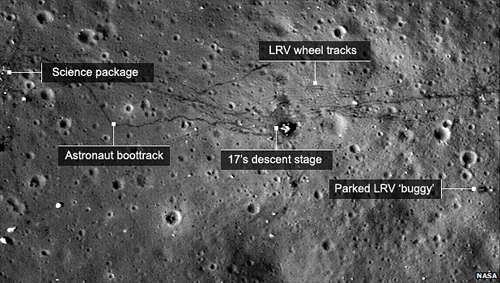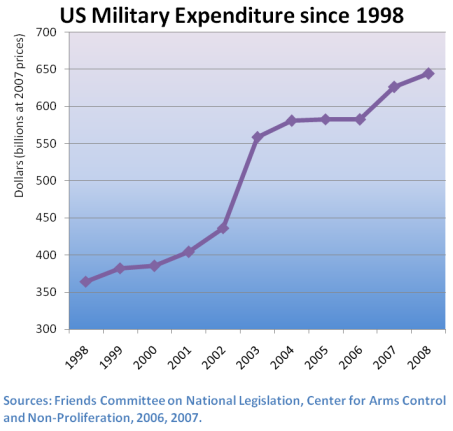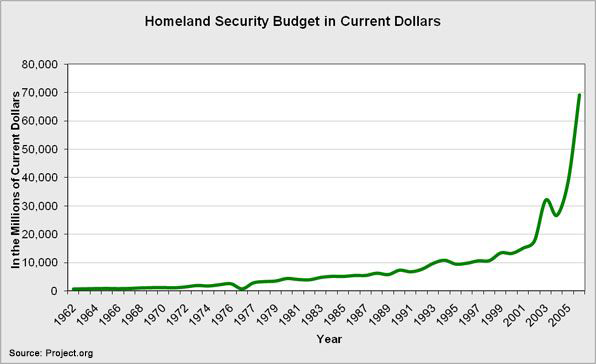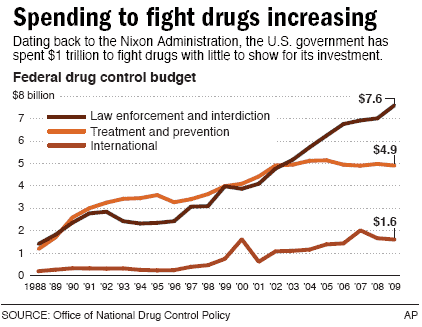The Real Reason We Don’t Yet Live Among the Stars
By Paul Rosenberg, FreemansPerspective.com

The man in the photo above is Gene Cernan, the last human to walk on the moon. Cernan left the moon in December of 1972 – more than forty years ago – and no one has gone back.
To understand how far we went forty years ago, on how little technology, consider this: Our modern smart phones have 200,000 times more power than the computers that took men to the moon.
Let me restate that: Space travel can be accomplished with forty-year-old technology.
Lamentations Are In Order
It is tragic beyond measure that human exploration has been neutered since 1972. Sure, we’ve sent out a few probes and placed a good telescope in orbit, but we have done nothing brave, nothing bold, nothing daring. Productive humans have been delegated to mute observance as their hard-earned surplus is syphoned off to capital cities, where it is sanctimoniously poured down a sewer of cultured dependencies and endless wars.
We remain locked onto this planet, not because we lack the ability to leave, but because so few of us are able to do anything about it.
What we have lost can be measured only in the billions of unactivated lives. Fifty years ago humanity was shocked to realize that they could go to the stars. After untold millennia of looking to the heavens, of wondering, dreaming and mourning the impossibility, we saw that we could go to the stars. And for ten years we took our first brave steps, successfully!
But after our first major step away from our crib, we were thrown back and surrounded with double-height rails. Since then, we have stagnated, and human culture has undergone a widespread rot. We watch science fictions about going to space, living in space and even fighting in space, but we have given up all hope of going ourselves… even though we did it just one generation ago.
Humanity – having recently discovered the ability to expand without limit – wanders aimlessly, with no challenging goal, no elevated purpose, and no path of escape. Space travel has leapfrogged us: it was done by our fathers; we imagine that it will be done by our sons; but we dare not think that it is possible to us.
They Were Men Like Us
We have more than enough ability to explore space right now. The men who did so a generation ago were not supermen, regardless of how the promotions made them appear.
I’ve met some of the people who did this forty years ago, including one of the men who walked on the moon. I found them to be reasonably decent and competent men (the astronaut struck me as especially capable), but I’ve known other men and women who were of equal or greater decency and competence.
The fault of our earth-bound lives lies not in our abilities. The spacemen were men like ourselves.
Now, please take a look at this photo:

You are observing a workman building a Mercury capsule. Look at the metal work: It is fine construction, and it was advanced for its day, but there are shops in every large city in America that could do the same job, faster, cheaper, with closer tolerances. Like every other technology, metal working has massively improved over the last forty years.
Now look at this Gemini launch. What in this picture is particularly hard to build?

We see concrete, metal frameworks and sprinklers. None of those things are remotely hard. Even the rocket is simple by modern standards.
In other words, this technology is simple to reproduce. None of it is beyond the grasp of journeyman craftsmen.
Leibniz, Newton and Aldrin
Originating is hard; second and third uses are not.
It took brilliant men like Leibniz and Newton to invent calculus, but now, millions of schoolchildren learn it every year.
It took a brilliant engineer like Buzz Aldrin to invent the technologies of space rendezvous, but there are millions of bright young men, right now, who are more than capable of using his discoveries.
Again, none of this is beyond us. And, by the way, we have lots of real geniuses in our time too… it’s just that they have been forced into systems that punish them for their brilliance, rather than rewarding them, or at least just leaving them alone.
Why Haven’t We Gone Back?
There are several ways to answer this question. Here are the answers that I think matter most:
#1: Space is Against the State’s Interest
Can you imagine what would happen to government in space? Once beyond Earth’s gravity well, the spacefarers would be gone forever: no more taxes, no more obedience, and heaps of scorn for the distant barbarians who demanded money and attempted violence to get it. Space would be the 17th century American wilderness on steroids. Politicians and tax gatherers would have no hope of keeping up.
The reason I’m so sure of this is simple mathematics.
Space is a territory that expends exponentially (as a cube of the distance) and endlessly. The numbers look like this:
- At one million miles, government requires 4,188,000,000 billion cubic miles of dominance.
- At two million miles it is 33,504,000 billion cubic miles of dominance.
- At three million miles it is 113,076,000,000 billion cubic miles of dominance.
- At four million miles it is 268,032,000,000 billion cubic miles of dominance.
And so on. The people who left could never again be contained and have their money removed by force. Those cows would never be milked again.
I should add that one million miles in space is almost trivial. At the speeds used forty years ago, that’s only 38.5 hours of travel.
17th century voyages across the Atlantic took weeks, and there was no lack of paying passengers. So, there is no hope of governments getting us back to space. To do so would be to shoot themselves in the chest, and they probably understand that.
#2: The Culture Has Gone Conformist
Consider what became of the past forty years: There has been no striving, no searching, no becoming. Instead, we’ve had:
- 24/7 entertainment, which made billions of otherwise-productive hours worthless.
- An obscene level of advertising that replaced authentic dreams with scientifically implanted manipulations.
- A success ethic that addresses the animal aspects of human life while utterly ignoring its higher aspects.
- Fame for the basest, weirdest and most lurid men and women; conformity for everyone else.
- The glorification and unlimited empowerment of the institution.
As a result, we’ve had boring, washed-out decades, focused on anything but the awe-inspiring, the good, and the truly heroic. These years have been stripped of the greatest excitement, discovery and growth that have ever been possible to our species.
Our current decade features no goals save bodily comfort, and no aspirations save existence and status. Underlying it all is a palette of manufactured fears that can only be salved by buying the right products or electing the right politicians. We are living through the triumph of manipulation and the disappearance of vigorous individuals.

The 1950s are considered a time of mass conformity, but they look like radical experimentation compared to the fully-scripted lives of today’s ‘successful’ people.
The men who went into space knew that death was a possibility, but they valued more than just animal rewards; they wanted to excel, to touch the heavens, to expand, to become more. In the broader cultures of the West, that attitude has been suppressed and nearly lost.
It may be that the next generation will demand more out of life than animal gratifications. Such changes have occurred in the past. Would to God that they come again soon.
#3: Our Money Is Taken from Us
We are taxed on our income at national, state and even local levels. We are taxed on what we spend. We are taxed on Ponzi retirement programs. We are taxed on property we own, and on gasoline we buy, and hundreds of other things.
We have no money left over for things that matter.
The taxation systems of the West are designed to rob us of every dollar we get, right up to the point where we’d be tempted to rebel. This is a science.
If you are a productive person, working in any sort of normal job, roughly half of your earnings are taken from you every year, leaving you just barely able to hang on to an acceptable lifestyle. Understand this: You are already rich, but your money is stolen from you, generally before you ever hold it in your hands.
If we actually held our own money, reaching space again could be done, easily, from a small percentage of our surplus. No coercion would be required, only a bit of excitement.

Photo: The relics of the last moon mission
What has been lost to us?
What happens to humans themselves (and by that I mean internally) once we get to space and have a few moments to “consider the heavens”?
Preliminary evidences are that humans in space think more deeply, more expansively, and more spiritually… that their consciousness opens up and expands.
Consider just these passages from astronauts on the first and last moon missions. (And I have many others.)
As Neil and I first stood on the surface of the moon looking back at Earth – a bright blue marble suspended in the blackness of space – the experience moved us in ways that we could not have anticipated.
– Buzz Aldrin, Apollo 11
Out there on another planet, I was looking back at the Earth, or I was looking back at the other stars in the universe – science and technology could no longer explain to me what I was feeling. Not just what I was seeing, it’s what I was feeling. And I kept thinking, above all religions, there has to be a creator.
It was to me like I was just sitting on a rocking chair on a Friday evening, looking back home, sitting on God’s front porch, looking back at the Earth; looking back home. It was really that simple, but it was an overpowering experience.
I’m sure that viewing the world from the moon only enriched me spiritually and also gave me a new vantage point on life… Anyone who walked on the moon had such a spiritual experience, similar to it or stronger.
– Gene Cernan, Apollo 17

When we lost the moon we lost our bearings; there was no distant star to guide us, no magnificent vision to pursue. Four decades on, we remain in a kind of stasis, mollified with streaming vanities and base satisfactions.
Perhaps we should have known that this would be the result. But when shall we return to the stars?
It isn’t rocket science anymore.
[Editor’s Note: This article is an excerpt from our flagship newsletter Freeman’s Perspective Issue #20: “Forty Years Gone: A Lamentation.” If you liked it, consider taking a risk-free test drive. Not only will you gain immediate access to the rest of the issue, but you’ll also be able to enjoy the entire archive – more than 520 pages of research on topics of importance and inspiration to those looking for freedom in an unfree world. Plus valuable bonus reports and all new issues as well. Click here to learn more.]
By Paul Rosenberg, FreemansPerspective.com













